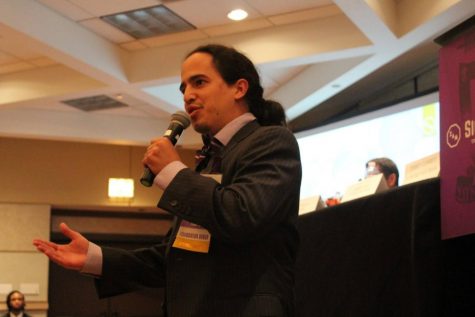The Sci-Files – 02/16/2020 – David Butts- Chronic Wasting Disease and Evacuation Modeling
February 17, 2020
On this week’s The Sci-Files, your hosts Chelsie and Danny interview David Butts.
David is a second-year Ph.D. student in the Computational Mathematics Science and Engineering department at Michigan State University, working under Prof. Murillo. David’s research employs a computational modeling technique called agent-based modeling.
Historically, scientific models were written mathematically and heavily simplified the real-world systems they represented. These models made large approximations, including treating many elements in a system as a single entity. Such simplifications were necessary in order to ensure that the models were solvable by humans. For example, in evacuations, we would be unable to model each driver on the road with a specified starting and ending location, amount of gas in their cars, and varying aggression in driving, but have to settle with just the number of cars on the road.
Computational models allow us to relax most of these limitations. Agent-based modeling specifically treats each element of a system explicitly, as agents. Agents interact with each other and their environment following a set of rules to achieve a goal. Rules replace equations that allow for behaviors that may be too complex to represent with other types of models to be added easily. Current applications of agent-based modeling include planning evacuations for emergency events including hurricanes and modeling deer movement to predict the spread of chronic wasting disease in Michigan.
If you’re interested in talking about your MSU research on the radio or nominating a student, please email Chelsie and Danny at [email protected]. Check The Sci-Files out on Twitter @SciFiles89FM and Facebook!




































